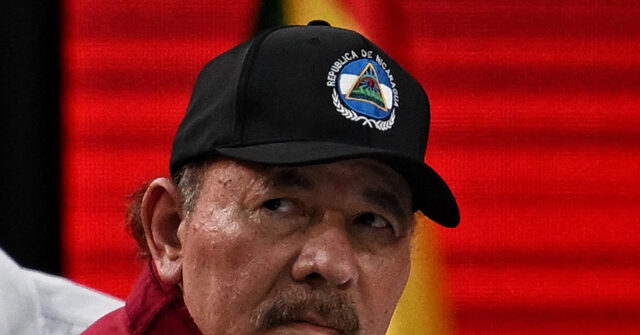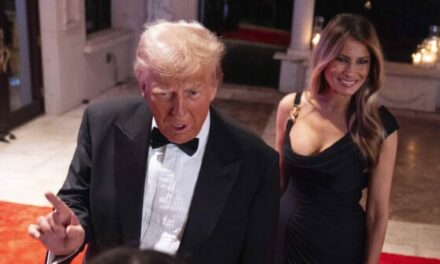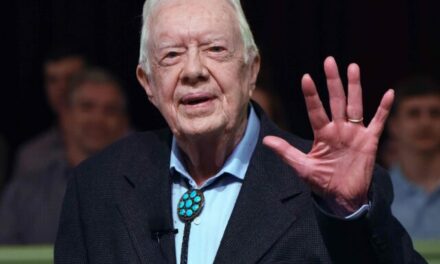We support our Publishers and Content Creators. You can view this story on their website by CLICKING HERE.

An Argentine federal court on Monday ordered the arrest of Nicaragua’s communist dictator Daniel Ortega, his wife and “co-president” Rosario Murillo, and roughly a dozen other members of Ortega’s top brass on allegations of “systematic violation of human rights.”
The warrant, signed by Argentine Federal Judge Ariel Lijo, stems from a complaint led by lawyer Dario Richarte originally filled in 2022 that called for an investigation into the numerous cases of murder, forced disappearances, torture, political persecution, and forced displacement of dissidents and other crimes against humanity committed by the Ortega regime — especially during the 2018 wave of anti-communist protests, when thousands took the streets to demand the end of the Ortega regime’s decades-long rule. The Ortega regime’s brutal repression of the anti-communism protesters left at least 355 dead.
The complaint was renewed seven times between November 2022 and February 2024. The Argentine court’s arrest warrants against Ortega, Murillo, who as of late November is now the the dictator’s “co-president,” and the group of regime officials were issued on the grounds of jus cogens, or peremptory norms – international legal principles considered to be universal. War crimes, genocide, and crimes against humanity are largely considered jus cogens crimes, meaning any court in the world can prosecute them regardless of jurisdiction.
The ruling and arrest warrants were also substantiated by confidential testimonies from some of the victims and reports from international organizations and numerous media articles documenting the events.
Richarte, who led the original complaint, celebrated the court’s ruling, describing it as a “historic fact” that will mark a “before and after” in terms of universal justice.
“Case against the Nicaraguan dictatorship in Argentina: after almost two and a half years of investigation, the Judge has just decided to summon people to give a statement and issue an arrest warrant with an international arrest warrant for Daniel Ortega, Rosario Murillo and around a dozen other people responsible for serious human rights violations,” Richarte’s message reads.
“We will expand on this during the day. A little light in the midst of so much darkness! A little justice for so many victims!” he continued.
Richarte spoke with the Argentine outlet Infobae on Monday and asserted that the recently-issued arrest warrant against the Nicaraguan dictator puts pressure on multilateral agencies and governments in the region to take concrete measures in response to the allegations. Richarte stressed that the measure also seeks to isolate other dictators and engage the international community, specially in the Americas, for the defense of democracy.
“I believe that justice will really be achieved the day Nicaragua recovers democracy and I believe that measures such as the one taken by the judge today serve to isolate these dictatorships internationally,” Richarte said.
“In an international context in which America has to refocus on recovering democracy in the continent, the Nicaraguan issue is extremely important, must be addressed and must be resolved as a priority,” he added.
The Argentine lawyer stated that it was “very, very difficult” to collect the evidence and testimonies against Ortega presented to the court, pointing out that it was very fortunate that the Argentine judge and prosecutor were receptive and allowed the victims to testify under confidentiality.
“What dictatorships do, beyond all the atrocious crimes they commit, is to divide families and on that basis, they often apply constant pressure. So it is very difficult for people, even in exile, to be able to give testimony for cases like these,” Richarte said.
Prior to the recent ruling and arrest warrant against Daniel Ortega, Argentine courts availed themselves of the principle of universal jurisdiction to issue an arrest warrant against Venezuela’s socialist dictator Nicolás Maduro and his justice minister and long-suspected drug lord Diosdado Cabello in September on allegations of crimes against humanity committed against the Venezuelan people, such as torture, kidnappings, and executions.
Christian K. Caruzo is a Venezuelan writer and documents life under socialism. You can follow him on Twitter here.

 Conservative
Conservative  Search
Search Trending
Trending Current News
Current News 







